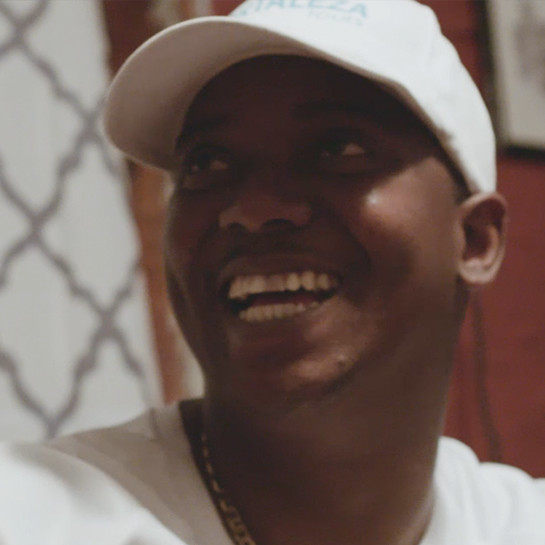Teaching Gangs A New Way To Hustle
Instead of beefing up law enforcement in Panama city's old quarter, real estate developer CALI Fellow and McNulty Laureate KC Hardin chose to work with entire gang hierarchies to demobilize and bring all of their members into the formal economy.
By KC Hardin
“War on gangs” is a staple of Central American rhetoric. Many of the world’s most violent cities are located here. Iron fist solutions are popularly supported, even though history has shown them to make the problem worse. Peace treaties eventually break down, whether among gangs or between gangs and government, the latter at heavy political cost to its sponsors.
The problem may be in the paradigm.
The dynamics of gang violence are complex, but one aspect is clear: gang members are products of environments so hopeless, signing up for almost certain death or jail is a rational career choice. Methods for addressing the root causes of gang membership are increasingly possible, but what do we do with the existing gang members? Are they criminals to be detained indefinitely by reason of affiliation? Are they terrorists to be defeated on the battlefield?
The question should be whether rehabilitation of gang members is possible at a large scale.
Small-scale rehabilitation efforts have been successful, but tend to focus on transitioning individual members who want to get out of gang life. This approach assumes that some members can reform, but the gang itself is an inherently criminal entity and its leaders are irredeemable. In some cases, these assumptions are true. There are sociopath gang leaders who can only be locked up, as well as transnational criminal organizations that exist solely to commit crime. But studies from the United Nations and others have repeatedly shown that for the most part, gangs in Central America have minimal connections to international criminal networks, and basic statistics tells us that most of their members are not criminally insane.
Living in a Panama City neighborhood once plagued by gangs, my community started a program that asked three gang leaders a simple question: what would a better future look like? It is an ongoing, imperfect process, but three years later all three gangs have demobilized. They’ve erased their graffiti and completed an intense personal development program. Many of the leaders are now small business owners backed by the same businesses they used to extort, and over half of the former rank-and-file members are working. Crime in our neighborhood is effectively eliminated and, critically, the former members take pride in being respected by the community rather than feared. The program is now working through a waiting list of gangs in bordering neighborhoods who have asked for their “turn.”
The program’s success stems from dialogue between diverse segments of society based on clear intentions. One former gang leader told me recently he trusted the process because “you didn’t need anything from us and you weren’t afraid of us.” In his marginalized existence, interactions with anyone other than his family or his fellow gang members were transactions based on fear. A straight-forward conversation with outsiders about the future was a new and compelling experience.
Social integration is a two-way street that depends on the willingness of very different groups to get out of their comfort zones and get close to the problems.
In the words of death row attorney Bryan Stevenson, “when you try to problem-solve from a distance you miss the details and the nuances of the problems and your solutions don't work….”
Our experience is that the desire of gang members to be accepted and to create a better future for their families is much more common than the desire of the rest of society to search for a way to make it possible. This is understandable. Years of fear compound dynamics of class struggle, stigmatization and politics.
The war paradigm just makes things worse by turning dialogue and social investment into political risks. The social integration paradigm makes it easier to see that the benefits of lowered violence are enjoyed by all, and that the burden of initiating the dialogue rests with those who have the resources to make integration possible.
In our community we have found that honest dialogue got us past the gang problem’s hard outer tunic, revealing softer, but still difficult questions. Is there enough employment? Are companies prepared to hire tattooed men with violent pasts? Can the police adequately protect groups that have demobilized from enemies who have not? Are there enough trained professionals to help transition thousands of warriors back to civilian life?
These are tough questions. Integration takes time, resources, and courage. But societies that aren’t willing to imagine former gang members living amongst them must ask themselves if they are ready for perpetual war.
KC Hardin is the CEO of co-founder and president of Conservatorio SA, a Panama-based company dedicated to sustainable urban revitalization. Through his venture, Esperanza, is helping to demobilize street gangs in Panama City. KC is one of four 2016 John P. McNulty Prize Laureates, and a Central America Leadership Initiative Fellow of the Aspen Global Leadership Network. Learn more about the McNulty Prize at www.mcnultyprize.org.
Other Recent Posts
Explore upcoming opportunities to come back together with this community and continue the journey of fellowship. October 14-15, 2023 | Dubai, UAE AGLN Fellow Reunion in Dubai Fellows across the AGLN, especially those in China, India, Africa and the Middle East, have expressed a desire to reconnect with one another to build deeper bonds in a location ...
Charles Conn is a 2001 Henry Crown Fellow. He is co-founder of Monograph, a life sciences venture firm, and chair of Patagonia. Charles co-authored best-selling Bulletproof Problem Solving , and newly released The Imperfectionists: Strategic Mindsets for Uncertain Times (Wiley 2023). Our Operating Context We live in a different world than the one ...
Together with the McNulty Foundation, we're excited to announce the Winners of the 2022 John P. McNulty Prize , three individuals who have leveraged their expertise, experience, and networks to build and lead transformative social impact ventures. Their transformative social ventures are striving to end malnutrition worldwide , sparking a ...
More than a year after the January 6, 2021, attack on the U.S. Capitol, the American political landscape reflects the yawning divides highlighted on that violent day and reveals the extent to which extremist beliefs have become part of the mainstream. As the 2022 midterm election campaign kicks into high gear, I’m deeply concerned about the state of ...
Fellows across the network are tackling issues like good education, diversity on boards, cross-community dialogue and more. This Giving Season, we're excited to share causes close to the hearts of Fellows across our global community. Read below and consider giving or getting involved in these incredible organizations.


Leave a Comment